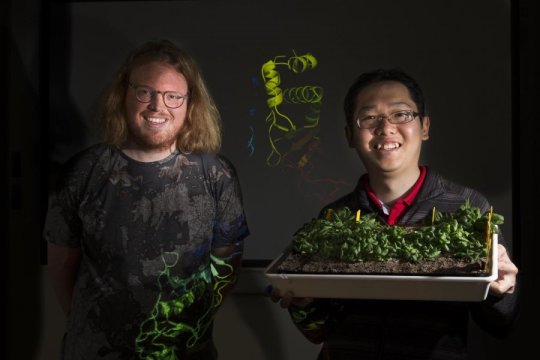| Australian Research Team Discovers How Plants Sense and Respond to Extreme Drought |
|
Lead researcher Dr. Kai Xun Chan said the team discovered an enzyme that senses adverse drought and sunlight conditions, and how it works from atomic to overall plant levels. The sensor in plant leaves constantly sense its environment, including water and light levels. It can sense when the conditions become unfavorable, such as during extreme drought stress, when it sets off a 'fire alarm' in the plant, telling it to respond to drought by making beneficial chemical compounds. |
|
Scientists led by The Australian National University (ANU) have discovered how plants, such as rice and wheat, sense and respond to stress brought by extreme drought.
Lead researcher Dr. Kai Xun Chan said the team discovered an enzyme that senses adverse drought and sunlight conditions, and how it works from atomic to overall plant levels. The sensor in plant leaves constantly sense its environment, including water and light levels. It can sense when the conditions become unfavorable, such as during extreme drought stress, when it sets off a 'fire alarm' in the plant, telling it to respond to drought by making beneficial chemical compounds. When this sensor alarm is activated during a dry season, the plant can activate counter-measures in its leaves to prevent unnecessary water loss and ensure that the plant survives until the next rainfall.
"We're really excited about the potential applications of this research, which range from genetic modifications and plant breeding to the development of a chemical spray that directly targets this sensor to set off the alarm in plants," Dr. Chan said.
For more information, read the news release at the ANU website.
Figure: Dr Peter Mabbitt and Dr Kai Xun Chan. Image: Stuart Hay, ANU. |
|
|
|
[ Tin tức liên quan ]___________________________________________________
|


 Curently online :
Curently online :
 Total visitors :
Total visitors :



